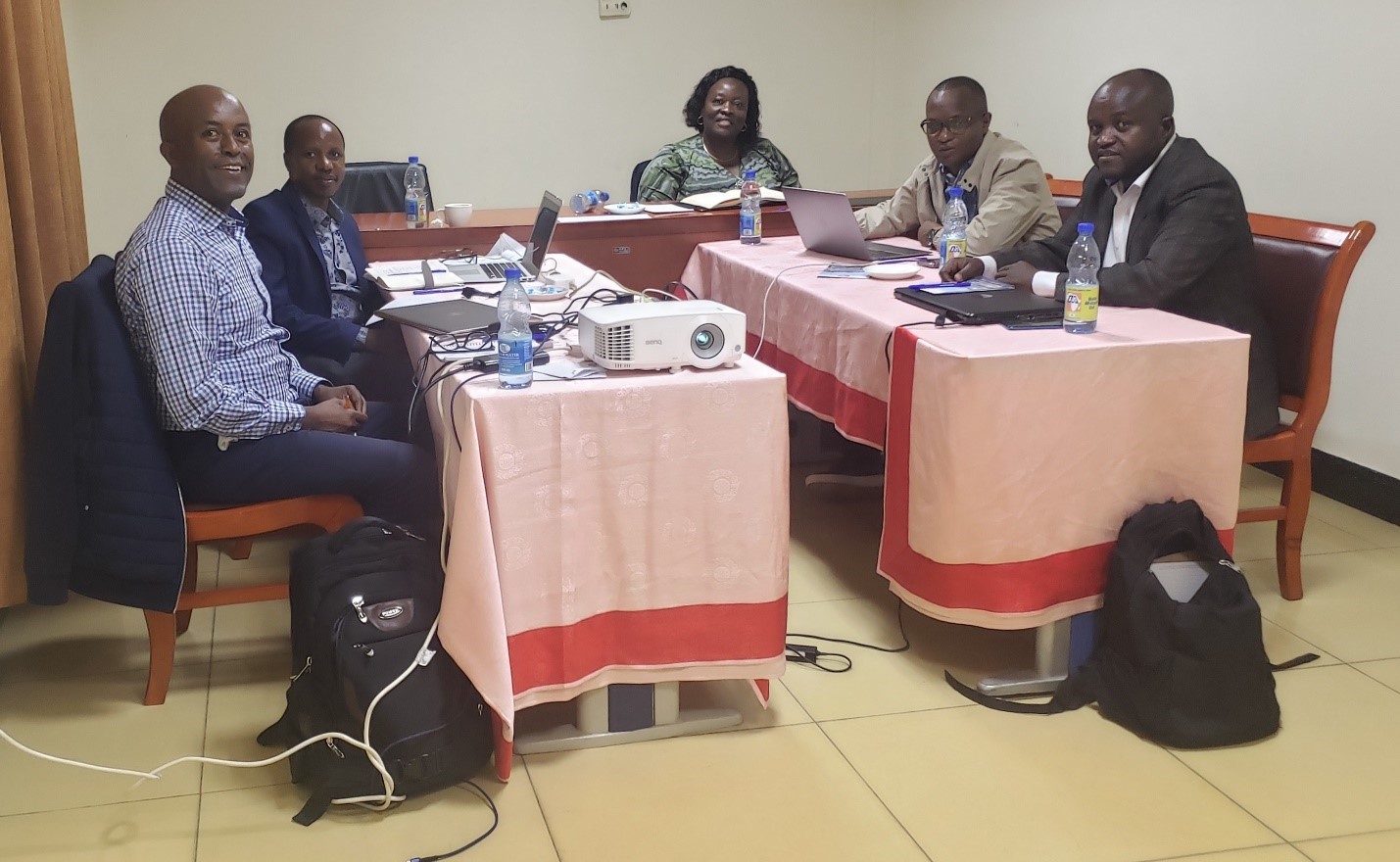
NEWS & EVENTS
Decolonizing Knowledge Systems: East Africa Partners Meet to Foster Southern-Led Approach
Kampala, Uganda - In an effort to promote a new Southern-Led approach to decolonizing knowledge systems, the East African partners of the Decolonizing Knowledge Systems project gathered at the Africana Hotel from March 15 to 17, 2023. The objective of the meeting was to establish a shared understanding of the project's goals, objectives, and anticipated impact. Led by the University of Dar es Salaam (UDSM) and the OSSREA, the meeting comprised eight sessions featuring prominent academics and researchers.
During the initial session, all participants engaged in a comprehensive discussion, outlining the meeting's objectives and the topics to be covered over the two and a half days. The second session delved into two critical themes concerning the understanding of knowledge decolonization. Dr. Richard led the first topic, providing an overview of the project's scope. He emphasized that the East African regional team would collaborate to develop a unified framework, research questions, and methodologies across different work streams. UDSM would conduct a critical review of institutional frameworks and governance structures in East African higher learning, while OSSREA's focus would be on knowledge production in forced displacement, taking a historical approach to explore the influences shaping scholarship, financing trends, promotion criteria, scholarly debates, and knowledge dissemination platforms.
The participants unanimously agreed that decolonizing knowledge systems involved establishing North to South and South to South partnerships, rather than completely discarding knowledge from the North. The project aimed to facilitate meaningful engagement, prioritizing a "people-centered approach" that transcends theory and extends to policy and practice. Several crucial questions emerged during the discussions, including: What defines knowledge in society? Who holds the responsibility for legitimizing knowledge? Whose knowledge is given prominence? Why does scientific knowledge dominate over other forms? Researchers also raised concerns about the agency of African researchers in knowledge construction, given that funding often originates from colonial North entities. The research team aspires to activate their agency in knowledge production, disrupting the status quo and promoting knowledge democracy by contextualizing knowledge production and challenging the dominance of Western knowledge.
Taking a historical perspective, the research team intends to explore key aspects related to forced displacement and migration. They will examine the shaping factors behind scholarships, funding trends, and promotion criteria within the realm of forced displacement research. The ultimate aim is to identify the stakeholders setting the agenda and financing research while critically analyzing knowledge dissemination platforms' promotion criteria. By undertaking this research, the team hopes to challenge reductionist tendencies prevalent in higher education institutions, where Western knowledge often reigns supreme as the sole truth.
Furthermore, the team proposed printing and distributing three posters focusing on podoconiosis and two posters highlighting scabies. These posters will be shared with the community of practice and NTD focal persons at the national, regional, and local levels. They will be prominently displayed in health centers, schools, churches, local administration offices, and other highly populated areas, thereby amplifying the awareness of podoconiosis and scabies.
The meeting also emphasized the significance of researcher positionality in knowledge production. Researchers need to be aware of their own power dynamics and understand how their personal characteristics and experiences can influence the research outcomes. By adopting a critical and reflexive approach, researchers can foster inclusivity and empower marginalized communities to participate actively in the research process. The utilization of alternative research methods that prioritize community engagement and empowerment was discussed, highlighting the importance of building strong relationships with the communities under study and involving them in co-creating research questions, data collection, analysis, and dissemination.
In terms of research methods, the team recommended employing a critical discourse analysis (CDA) approach, which involves scrutinizing dominant discourses and narratives within the field. Researchers will analyze existing literature, critically examining any Eurocentric and colonial biases present. Additionally, qualitative methods such as in-depth interviews and focus groups will be employed to gather insights from African actors affected by forced migration and displacement. This comprehensive research approach aims to challenge existing knowledge production processes and promote more inclusive and participatory methodologies.
The meeting concluded with the team outlining a conceptual framework, methodology paper, and a set of guiding research questions. These questions will facilitate a critical discourse analysis of knowledge production in forced migration and displacement in Africa. In addition, the team plans to write blog articles based on the meeting's discussions, which will be shared on OSSREA's website. An implementation plan for the project is also being developed.
The East Africa Partners Meeting was a significant step towards promoting a new Southern-Led approach to decolonizing knowledge systems. By actively engaging with marginalized communities, challenging power imbalances, and adopting inclusive research methodologies, the project aims to reshape knowledge production, foster knowledge democracy, and address the historical legacies of colonialism in Africa.


